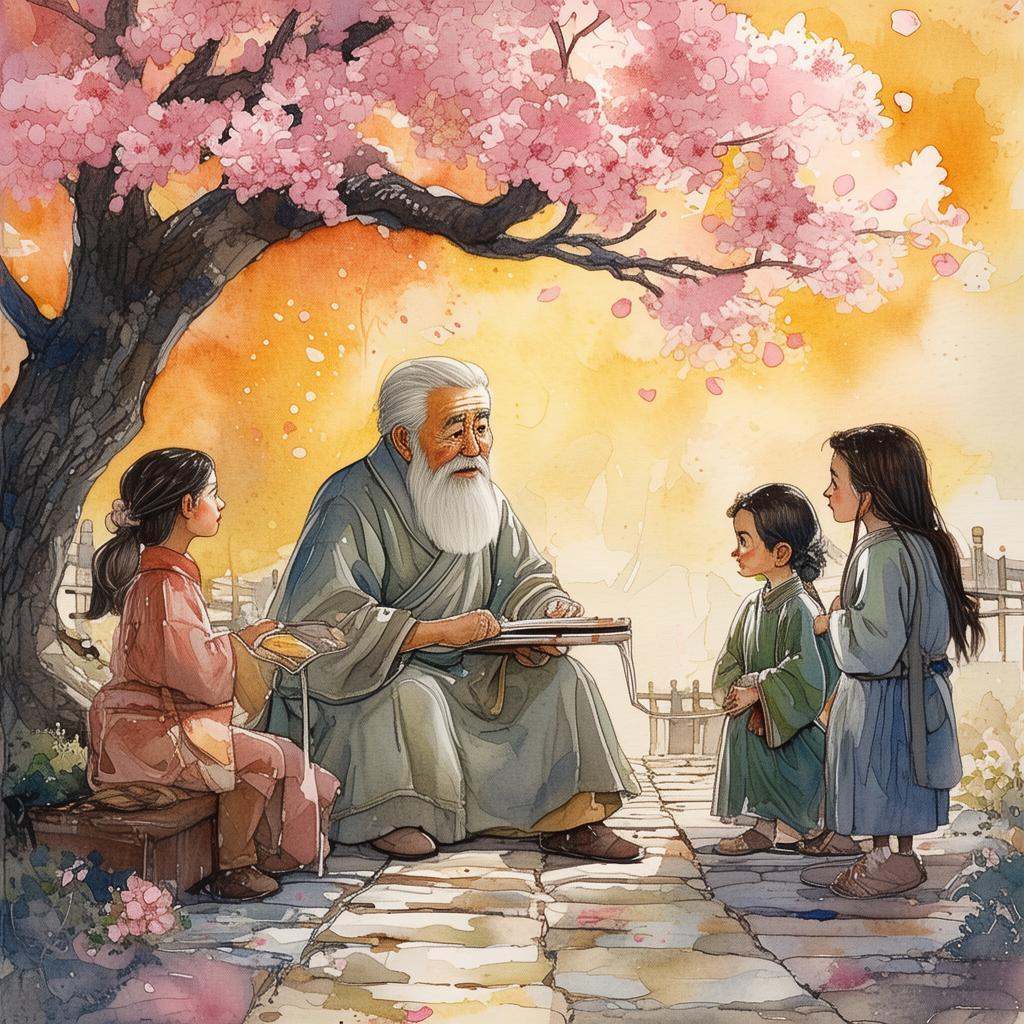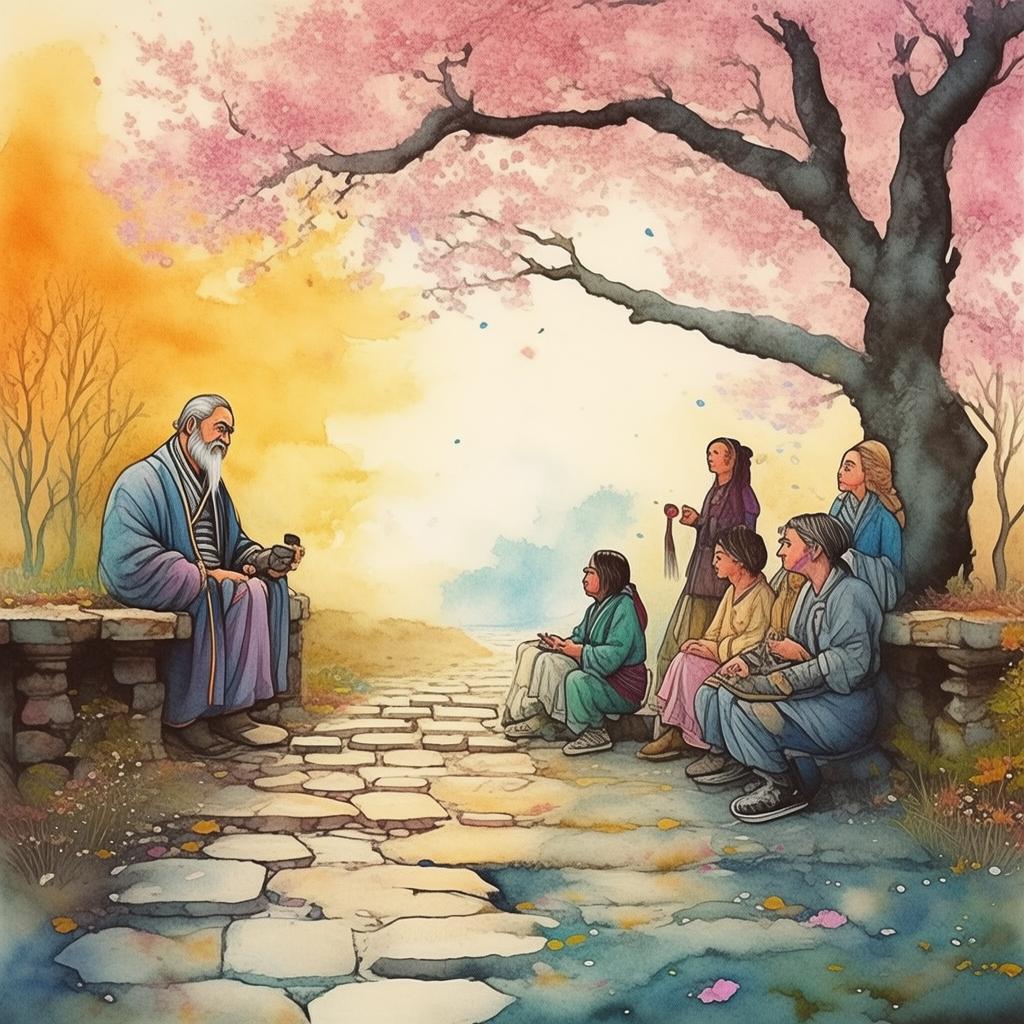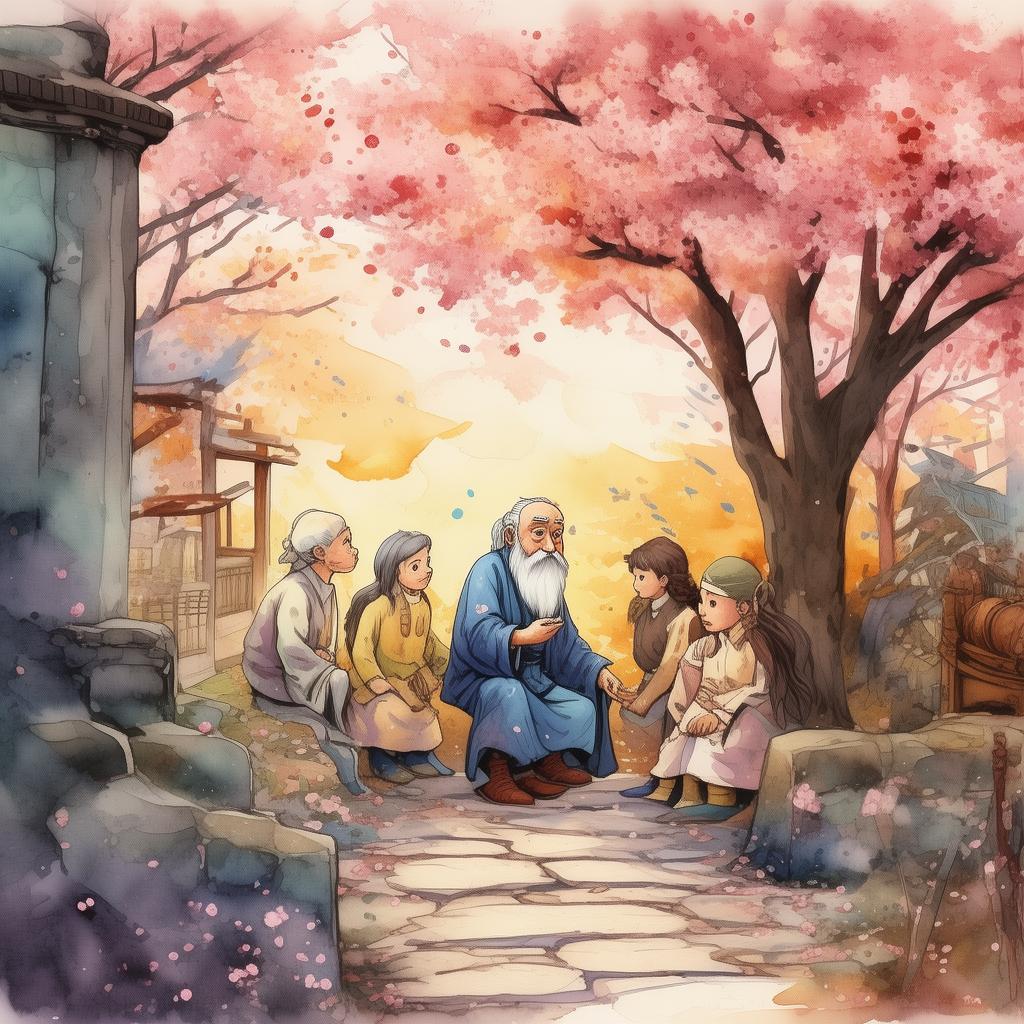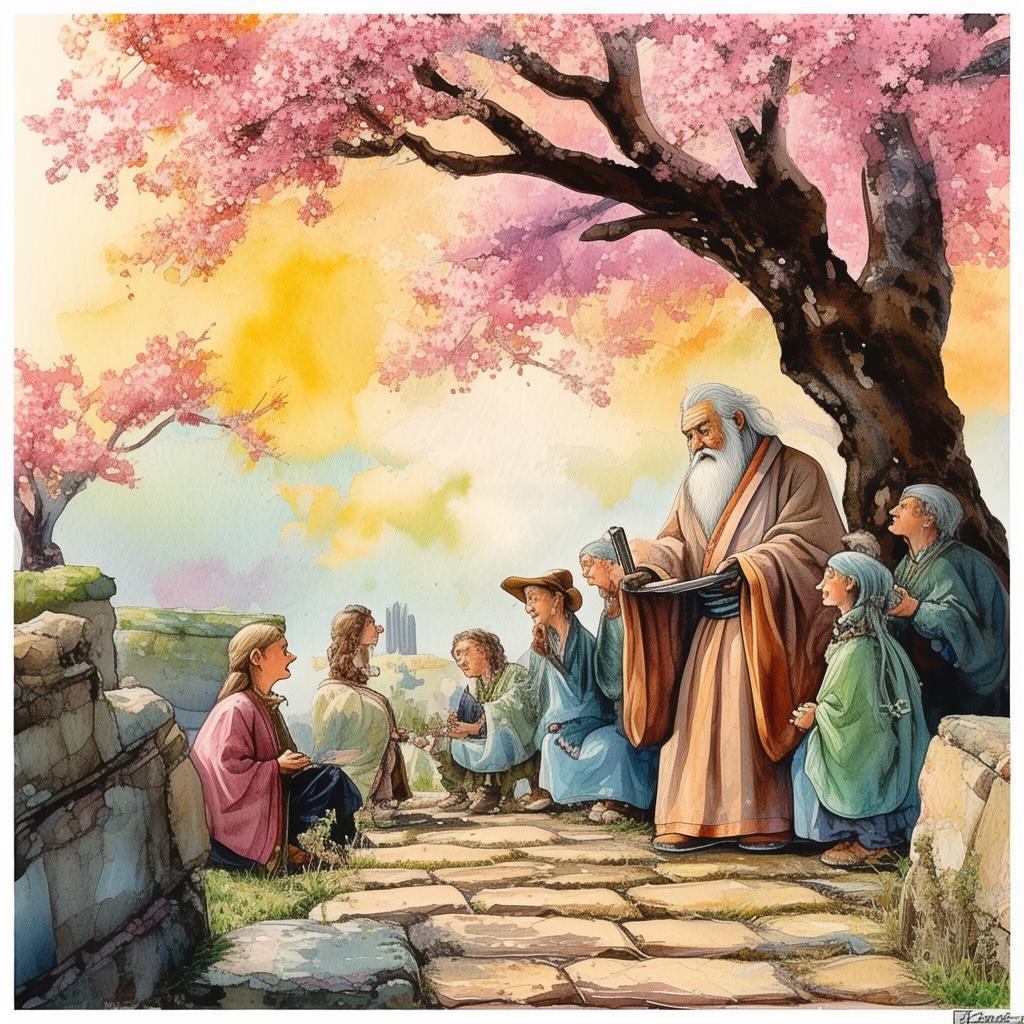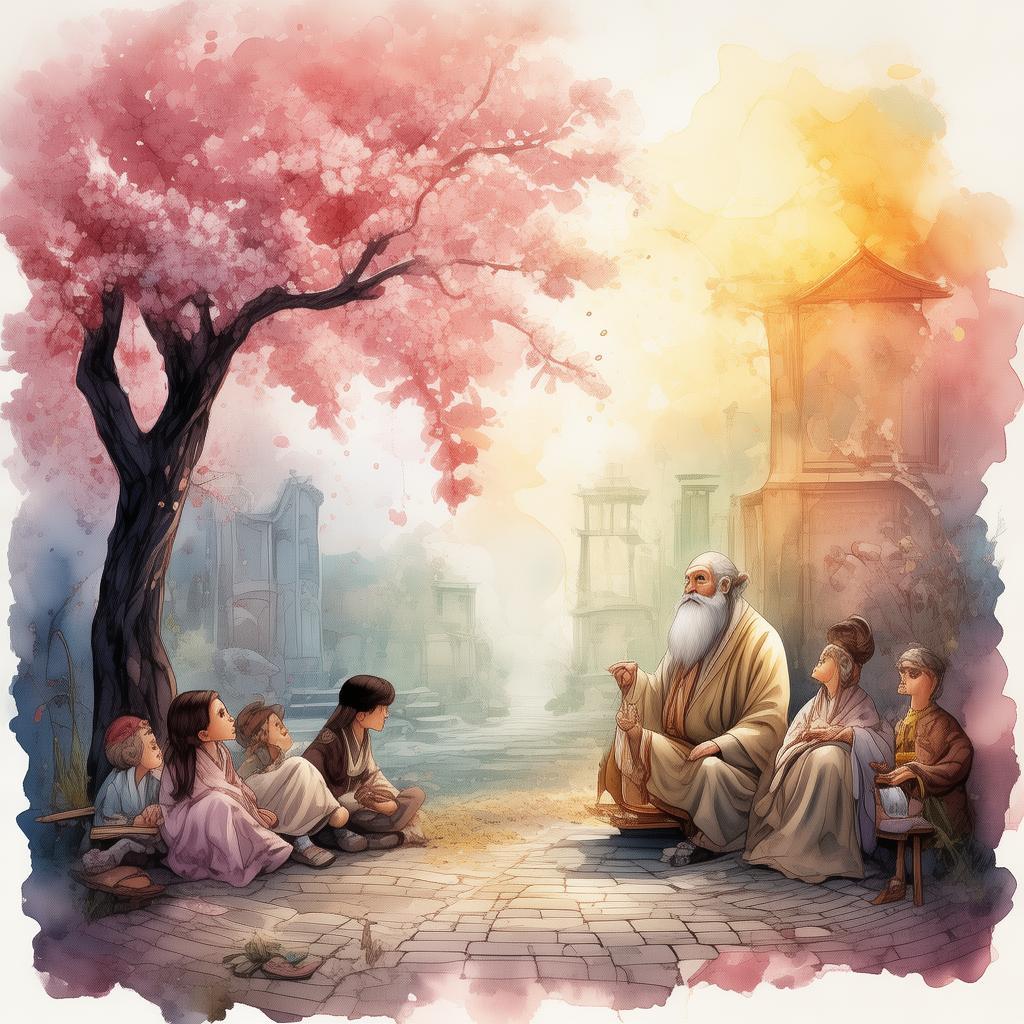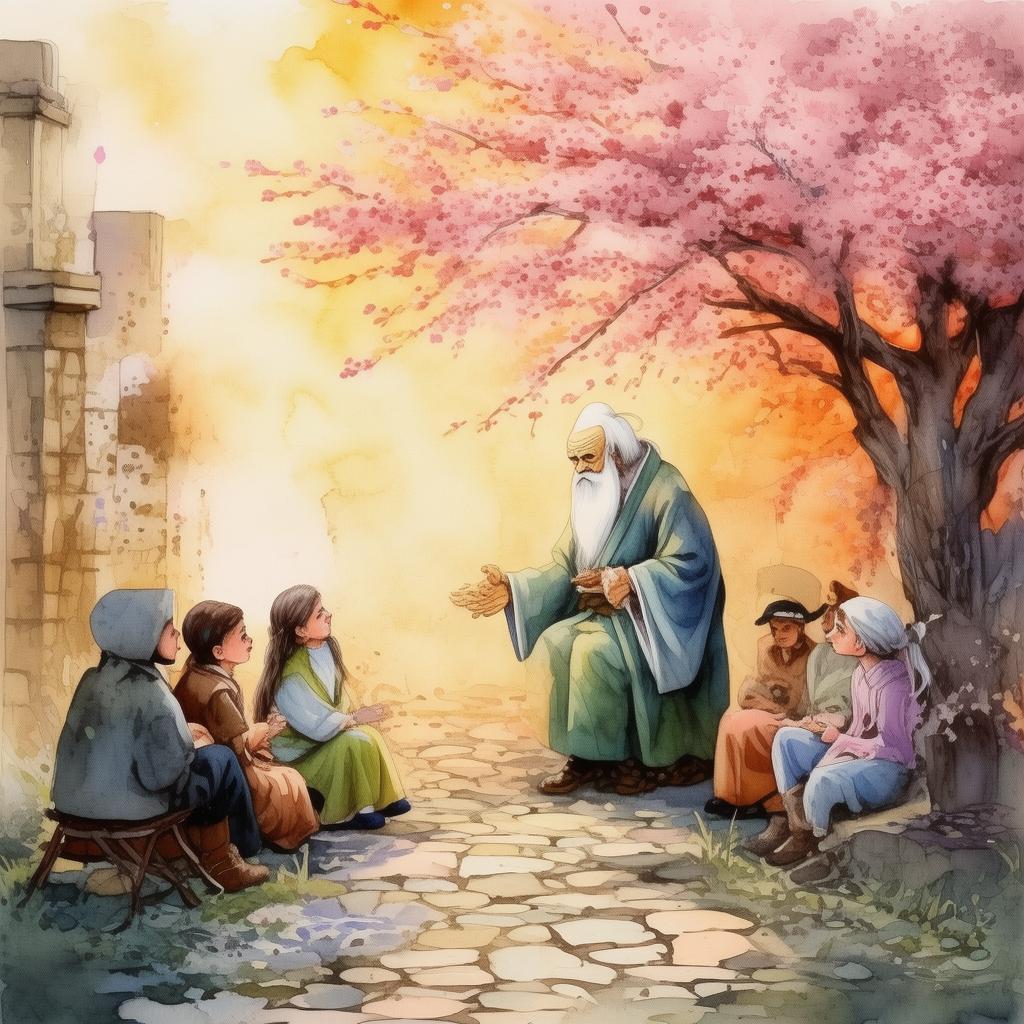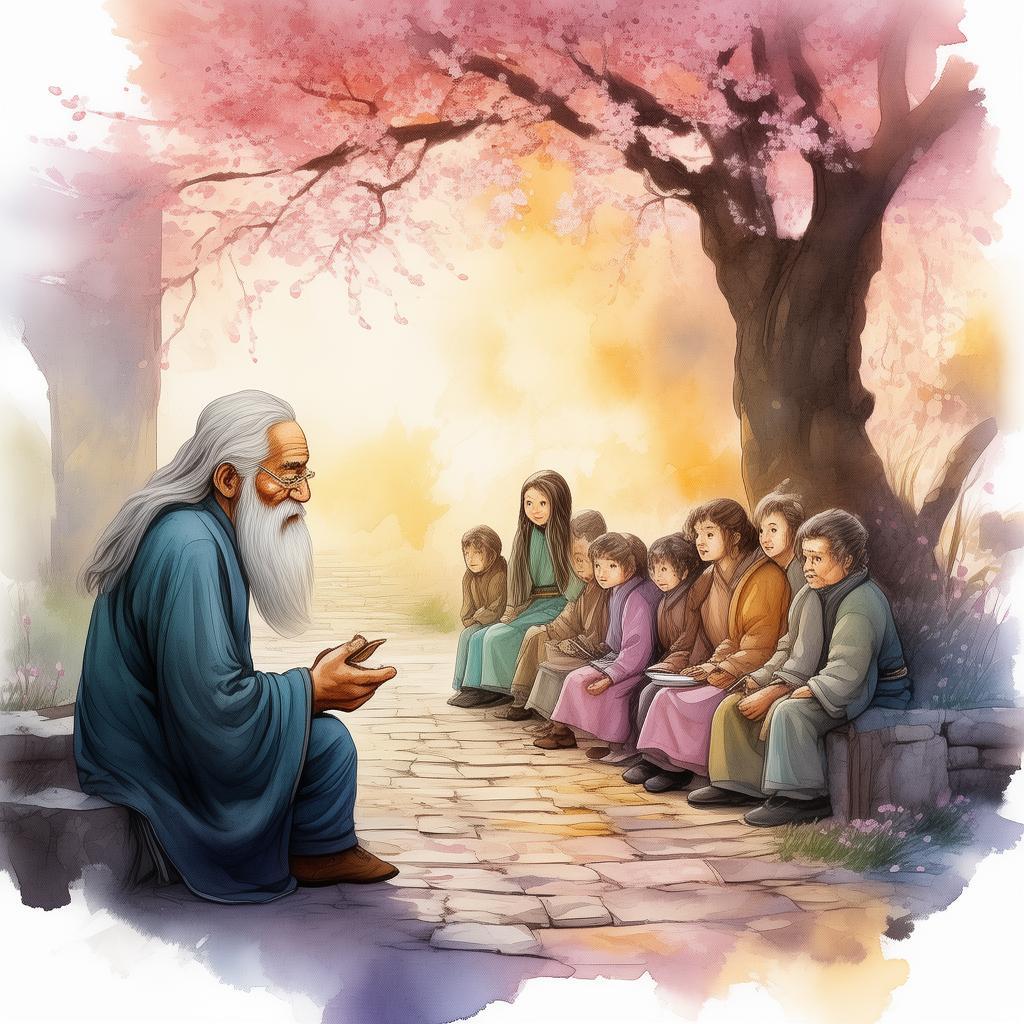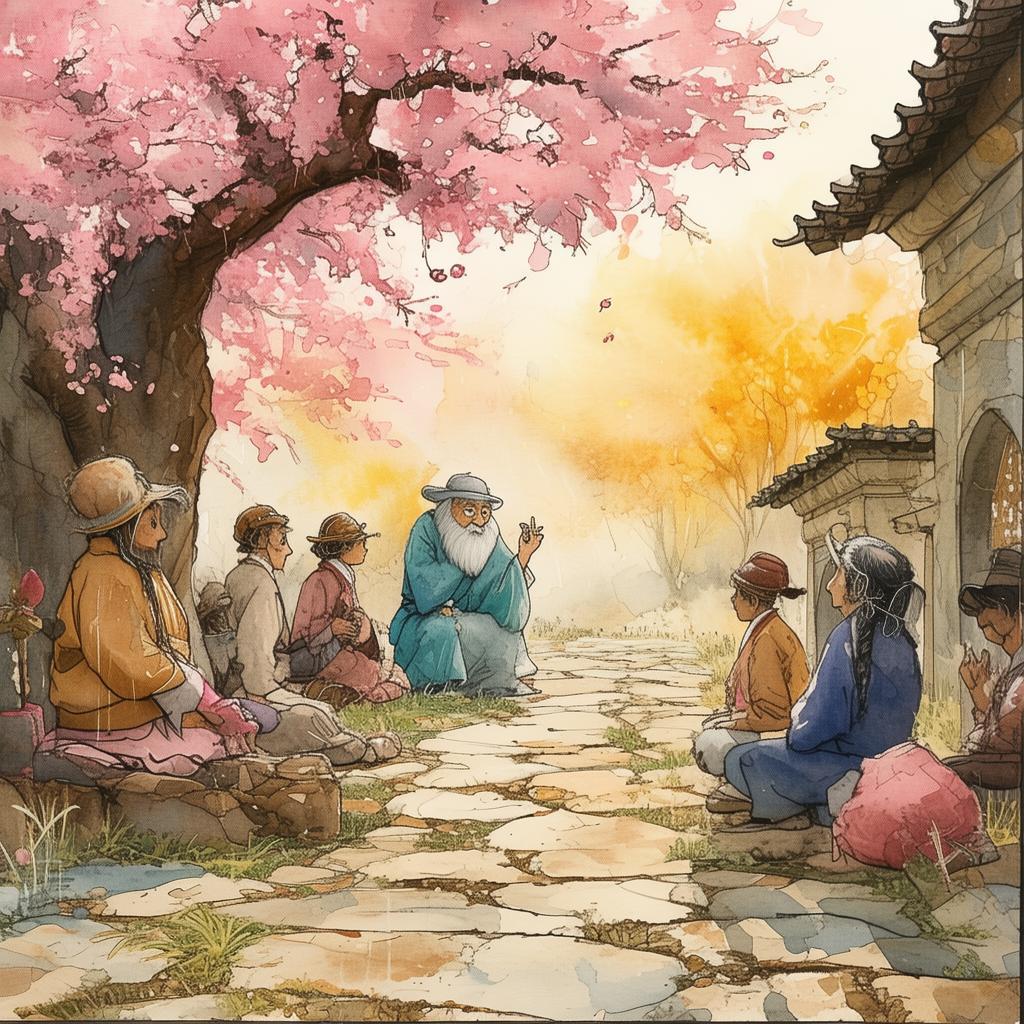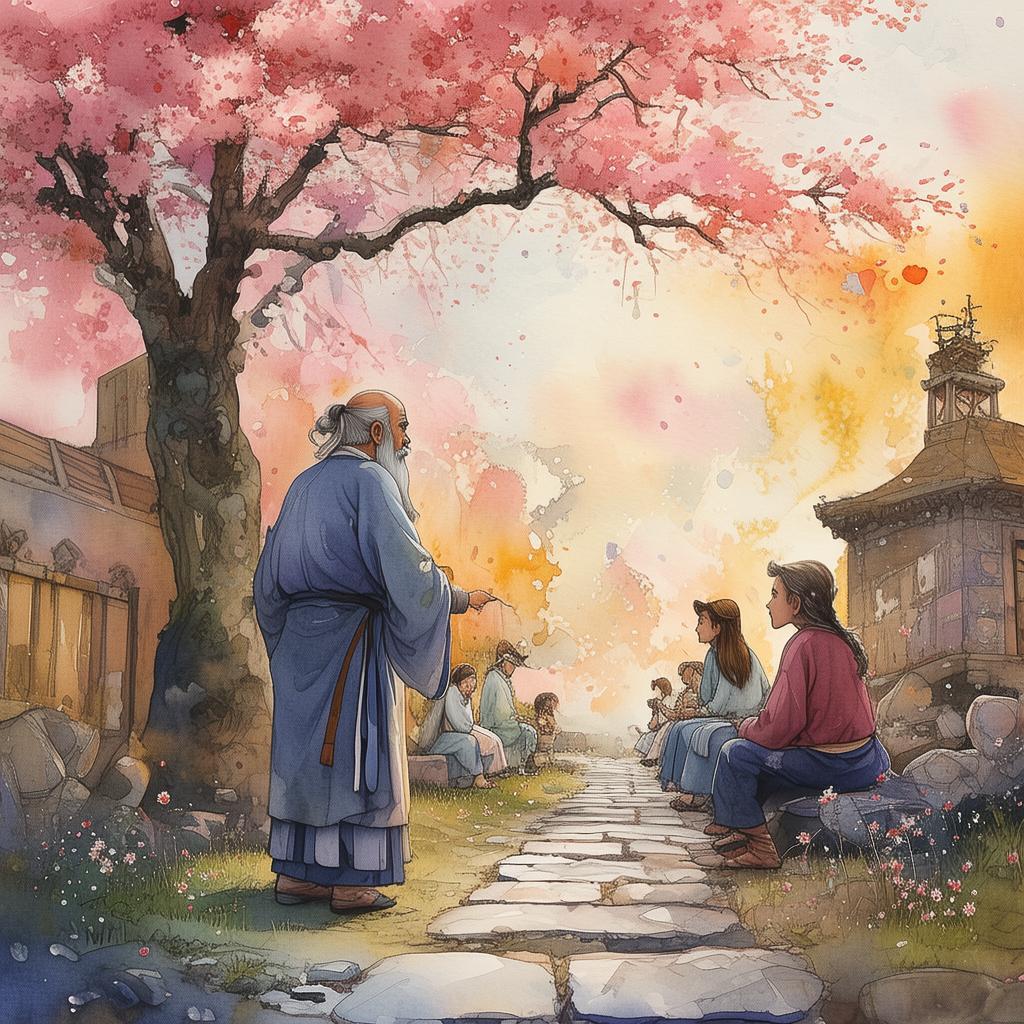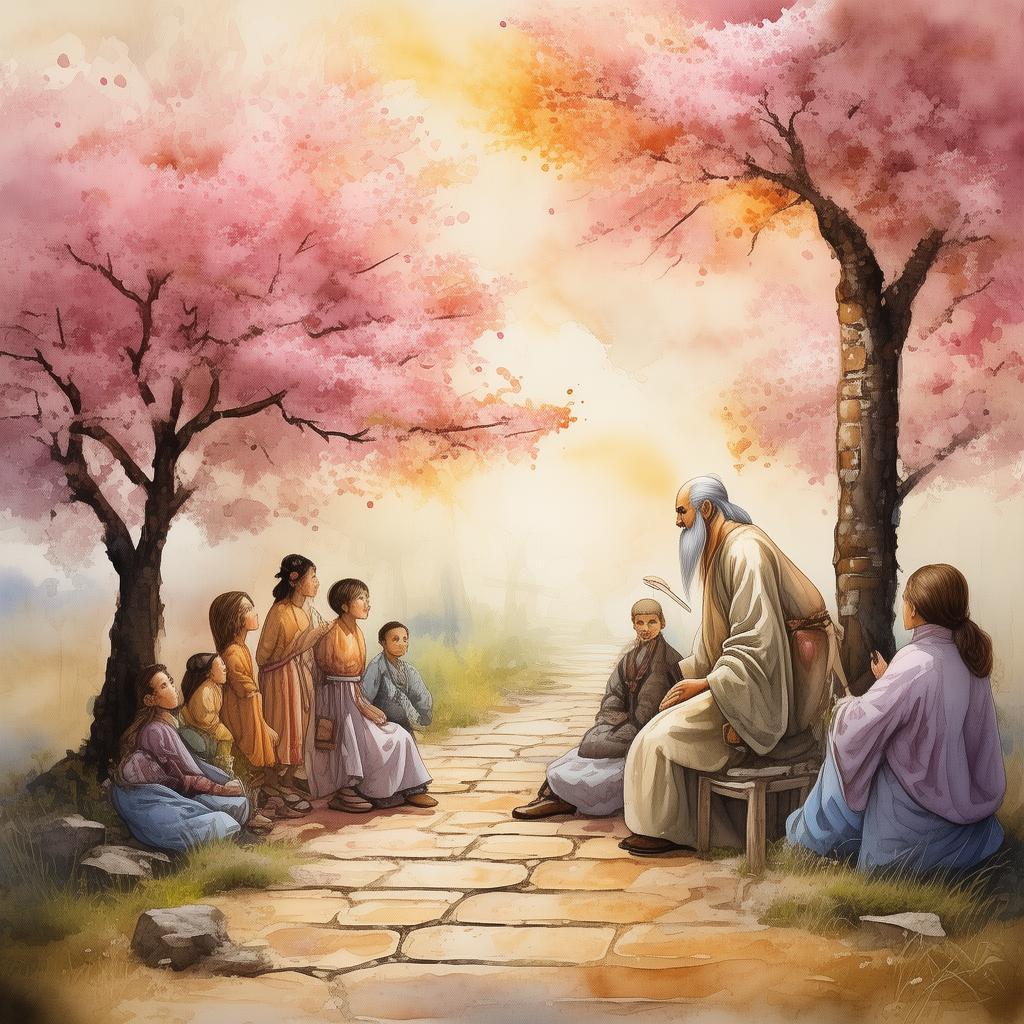Whispers of the Afterlife: The Last Confession
In the hallowed grounds of the Kingdom of the Dead, where the whispers of the departed resonate through the cobblestone streets, there lay a tale as old as time. It was a tale of a soul bound for the afterlife, a soul named Ming. Ming was a man who lived a life of shadows, his actions as enigmatic as they were fraught with moral ambiguity. As the night fell upon the kingdom, Ming found himself standing at the threshold of a realm where the living could no longer reach, where the dead sought to find peace through atonement.
The journey into the afterlife was a perilous one, marked by the Four Idioms, each a riddle that must be solved to reach the next stage. Ming had heard the legends, the tales of those who failed to navigate the idioms and were trapped in the eternal cycle of the afterlife. But Ming, driven by a desire to escape his own mortality, embarked upon this journey with a resolute heart.
The first idiomatic challenge presented itself as a riddle: "What is it that walks on four legs in the morning, two legs at noon, and three legs in the evening?" Ming pondered the riddle, his mind racing through the possibilities. The answer, as it turned out, was "a man." This was a metaphor for the stages of life, from infancy to old age, and the realization was a stark reminder of the fleeting nature of time.
The second idiomatic challenge was a test of one's integrity. A figure approached Ming and asked, "How can you be sure that what you have given is truly yours?" Ming, caught off guard, hesitated. The answer, as he learned, was that the essence of one's true self is what is given away, leaving the material world behind. Ming was humbled by this realization, understanding that his life's work was not measured in wealth or fame but in the legacy he left behind through his actions.
The third idiomatic challenge was a test of one's compassion. Ming was confronted by a soul in need, a child without parents, and he was asked to share his last meal with the child. Ming, with a heavy heart, realized that this was a test of his willingness to selflessly give of himself. He shared his meal, and the child's smile was a balm to his soul.
The fourth and final idiomatic challenge was the most daunting. Ming was presented with his life's regrets, laid out before him in vivid detail. He was forced to confront the choices he had made and the consequences that followed. It was in this moment that Ming found himself at a crossroads. Could he atone for his past actions, or would he be consumed by the guilt of his mistakes?
In a moment of profound introspection, Ming chose to confess his regrets. He spoke of the times he had betrayed his friends, the moments he had taken the easy path instead of the right one, and the love he had squandered. His confession was raw and heartfelt, and it resonated with the spirits around him. They witnessed the pain in his eyes, the sorrow in his voice, and they understood the depth of his atonement.
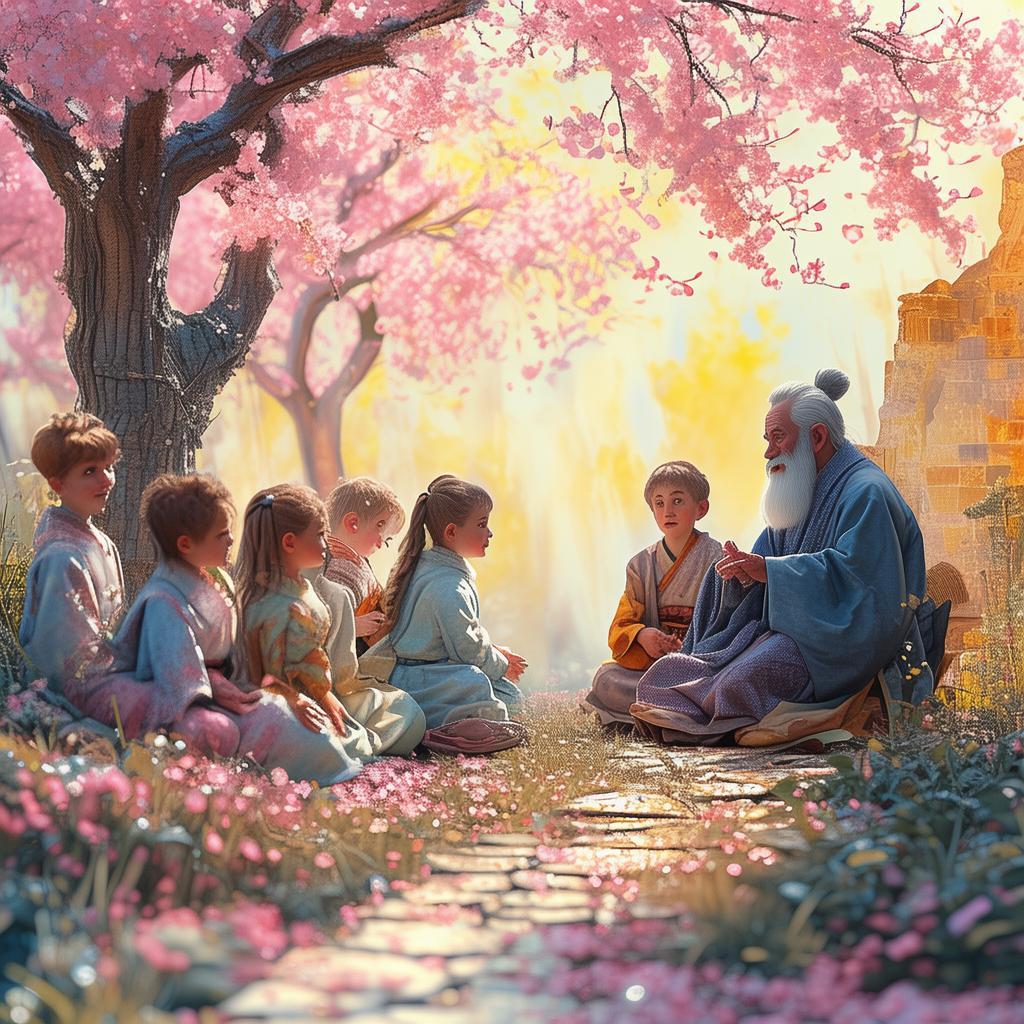
As Ming confessed, he felt a weight lift from his shoulders, a burden that had followed him for far too long. His soul was cleansed, and he was allowed to move on to the next stage of his journey. But this was not the end of his tale. Ming was given a second chance to make amends in the world of the living, to rectify his wrongs and to live a life that was not just about him, but about the impact he had on others.
The journey back to the living world was long and arduous, but Ming faced it with newfound purpose. He set out to make amends, to live a life that honored the lessons he had learned in the afterlife. And so, the tale of Ming became a legend, a story of redemption and the power of confession.
The whispers of the afterlife continued to resonate through the kingdom, a testament to the fact that even the soul bound for the afterlife could find peace through the journey of self-discovery and atonement. Ming's story became a guiding light for those who followed in his footsteps, a reminder that it is never too late to make amends and to seek redemption.
✨ Original Statement ✨
All articles published on this website (including but not limited to text, images, videos, and other content) are original or authorized for reposting and are protected by relevant laws. Without the explicit written permission of this website, no individual or organization may copy, modify, repost, or use the content for commercial purposes.
If you need to quote or cooperate, please contact this site for authorization. We reserve the right to pursue legal responsibility for any unauthorized use.
Hereby declared.
